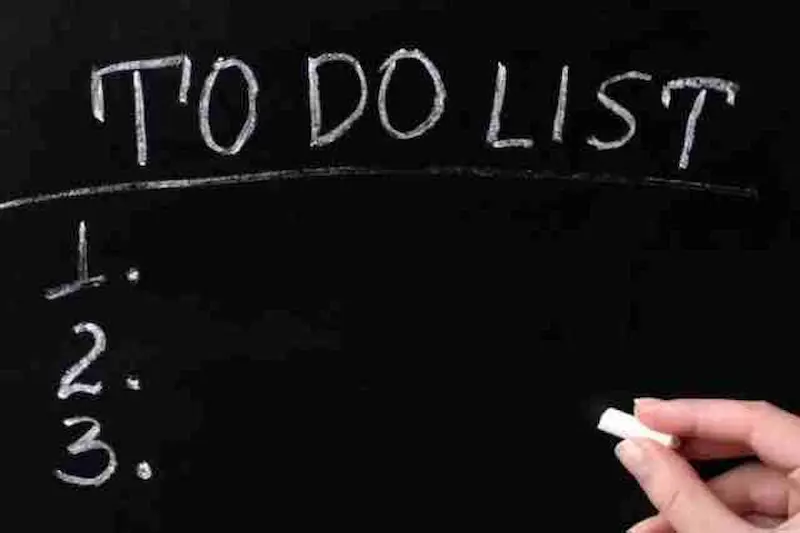How to Make Life Feel Easier: Life can often feel like a whirlwind, with endless responsibilities, stress, and demands on our time and energy. It’s easy to get caught up in the chaos and forget to take care of ourselves. But what if I told you that there are simple, little ways to make life feel easier? These are not grand, life-altering changes; rather, they are small adjustments that can have a significant impact on your overall well-being. In this article, we’ll explore ten such strategies that can help you navigate the complexities of life with greater ease.
De-clutter Everything:
Imagine walking into a room that’s neat, tidy, and clutter-free. Doesn’t it instantly make you feel lighter and more at ease? Clutter, whether at home or work, can contribute to stress and overwhelm. Start by going through your physical spaces and identify items you no longer need. Donate or discard them. You’ll be amazed at how this simple act can create an environment that promotes calmness and productivity.
Example: Sarah, a working professional, decided to declutter her office desk. She cleared out old paperwork, organized her stationery, and created a more streamlined workspace. The result? She felt less stressed and more focused, which boosted her productivity.


Write Stuff Down:
Our lives are filled with countless tasks, appointments, and commitments. It’s impossible to remember everything, and trying to do so can lead to anxiety. Make it a habit to write things down. Whether you use a notebook, digital app, or your smartphone, jotting down important information, ideas, or to-do lists can free up mental space and reduce the fear of forgetting something crucial.
Example: John started using a digital to-do list app. Instead of relying on his memory, he inputted tasks as they came to mind. This helped him stay organized and prevented last-minute rushes to complete assignments.
Also Read: 10 Effective Strategies for Maintaining Exercise Motivation
Do the Most Important Things:
Time is a precious resource, and it’s easy to waste it on trivial activities or distractions. Reflect on your daily routine and identify your top priorities. Focus your time and energy on tasks that align with your goals and values. Remember, it’s not about being busy but about being productive and purposeful.
Example: Lisa realized that she was spending too much time on social media. She decided to limit her daily usage and redirect that time toward pursuing her hobbies and spending quality time with loved ones. As a result, she felt more fulfilled and less stressed.


Turn It Off For Sometime:
In today’s digital age, we’re constantly connected to our smartphones, social media, and streaming services. While these technologies offer many benefits, they can also be overwhelming. Take regular breaks from screens and immerse yourself in the real world. Engage in face-to-face conversations, enjoy nature, or simply savor moments of solitude.
Example: David used to spend hours scrolling through social media feeds every evening. He decided to allocate one hour each day for social media and used the extra time to read books. This shift not only reduced his screen time but also enriched his life.
Listen to Your Intuition:
Your intuition, often referred to as your gut feeling, is a powerful guide. Instead of overthinking every decision, trust your instincts. Your initial response to a situation is often aligned with your true desires and values. Embrace your intuition as a valuable tool for simplifying decision-making.
Example: Emma was torn between two job offers, both offering attractive benefits. After much contemplation, she decided to follow her intuition. She chose the job that felt like the right fit for her personality and aspirations. It turned out to be a fulfilling career move.
Form Good Sleeping Habits:
Quality sleep is essential for physical and mental well-being. Yet, many people neglect their sleep patterns, leading to fatigue and irritability. Establish a consistent sleep schedule, create a relaxing bedtime routine, and prioritize sleep as a fundamental part of self-care.
Example: Michael used to stay up late watching TV and struggled with grogginess during the day. He committed to going to bed at a reasonable hour and practicing relaxation techniques before sleep. Within a few weeks, he noticed increased energy levels and improved focus.
Keep Away From the Drama:
Drama and negativity can drain your energy and make life feel more complicated than it needs to be. Avoid getting entangled in gossip, conflicts, or situations that do not contribute positively to your life. Focus on nurturing healthy relationships and maintaining a peaceful environment.
Example: Sarah had a coworker who often engaged in office gossip. Instead of participating, she chose to redirect conversations toward productive topics or simply excused herself from such discussions. This helped her maintain a harmonious work environment.
Embrace Minimalism:
Minimalism is a lifestyle choice that emphasizes simplicity and intentional living. By decluttering your possessions, reducing excessive consumption, and prioritizing experiences over material possessions, you can create a sense of freedom and contentment.
Example: Mark decided to downsize his home and sell items he no longer needed. He shifted his focus from accumulating things to creating memorable experiences with his family. This change in perspective brought him greater joy and fulfillment.
Practice Mindfulness:


Mindfulness involves being fully present in the moment, without judgment. It can help you reduce stress, improve concentration, and savor life’s small pleasures. Incorporate mindfulness into your daily routine through meditation, deep breathing, or simply paying attention to your surroundings.
Example: Maria started practicing mindfulness during her daily walks. Instead of rushing through them, she paid attention to the sights, sounds, and sensations around her. This simple practice allowed her to appreciate the beauty of everyday life.
Learn to Say No:
One of the most powerful ways to simplify your life is by setting boundaries. It’s okay to say no to commitments or requests that overwhelm you or do not align with your priorities. Prioritize your well-being and protect your time and energy.
Example: James used to say yes to every social invitation, even when he felt exhausted. He started politely declining some invitations and dedicating more time to self-care. This change helped him strike a better balance in his life.
Conclusion:
Life doesn’t have to be an endless struggle. By implementing these ten little ways to make life feel easier, you can create a more peaceful, fulfilling, and simplified existence. Remember that small changes can lead to significant improvements in your overall well-being. Embrace simplicity, prioritize self-care, and enjoy the journey of life with greater ease.
How to Make Life Feel Easier:
FAQ
Q1: What does it mean to “de-clutter everything,” and how can it make life feel easier?
A1: De-cluttering everything involves removing unnecessary items from your physical spaces. It makes life feel easier by creating a clean and organized environment that reduces stress and promotes productivity.
Q2: Why is it important to write things down, and how can it help simplify life?
A2: Writing things down helps you remember important tasks, ideas, and commitments. It simplifies life by preventing the fear of forgetting something crucial and keeping your mind clear for more important matters.
Q3: How can focusing on the most important things in life lead to a sense of ease?
A3: Prioritizing the most important tasks aligns your actions with your goals and values. It simplifies life by ensuring that your time and energy are directed toward meaningful and purposeful activities.
Q4: Why is it beneficial to turn off digital devices and engage in face-to-face interactions?
A4: Disconnecting from screens and engaging with the real world helps you find balance and reduces the overwhelm caused by constant digital connectivity. It allows you to enjoy genuine human interactions and live in the moment.
Q5: What role does intuition play in simplifying decision-making?
A5: Intuition, or gut feeling, provides quick and often accurate insights into decision-making. It simplifies the process by allowing you to trust your initial response, reducing overthinking, and making choices aligned with your true desires.
Q6: How can forming good sleeping habits contribute to a simpler life?
A6: Establishing consistent sleep patterns and prioritizing quality sleep reduces fatigue and enhances overall well-being. It simplifies life by ensuring you have the energy and focus to tackle daily challenges effectively.
Q7: Why is it advisable to keep away from drama and negativity?
A7: Drama and negativity can drain your energy and complicate your life unnecessarily. Avoiding them helps you maintain a peaceful and harmonious environment, reducing stress and distractions.
Q8: How does embracing minimalism simplify one’s life?
A8: Embracing minimalism involves decluttering possessions, reducing consumption, and focusing on experiences over material goods. It simplifies life by freeing you from the burden of excess and promoting contentment through simplicity.
Q9: What is mindfulness, and how can it simplify daily life?
A9: Mindfulness is being fully present in the moment without judgment. It simplifies daily life by reducing stress, improving focus, and allowing you to appreciate the beauty in ordinary moments.
Q10: Why is learning to say no an essential aspect of simplifying life?
A10: Learning to say no helps you set boundaries and prioritize self-care. It ensures that you commit to activities and responsibilities that align with your well-being and goals, simplifying your overall life experience.

